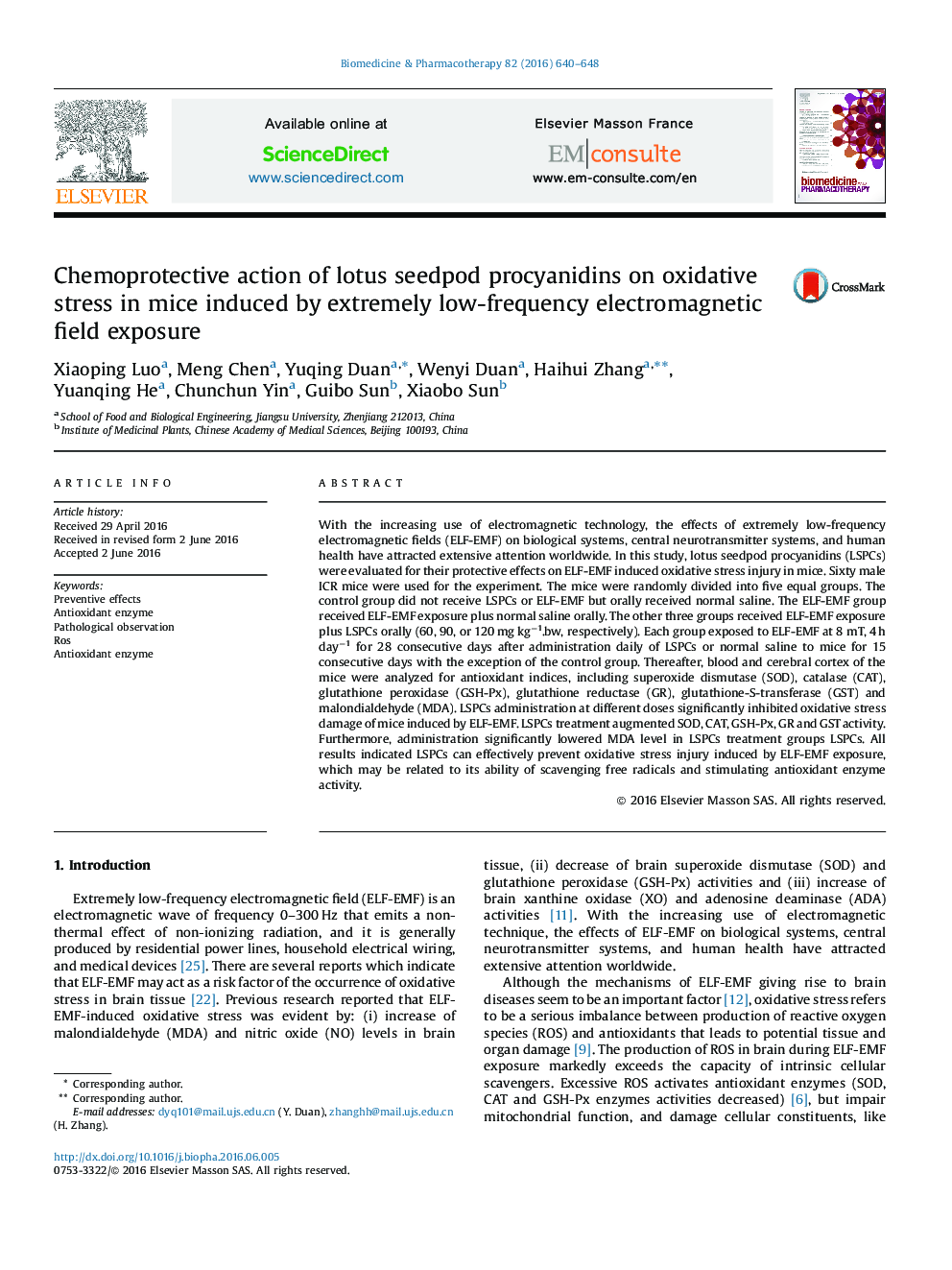| Article ID | Journal | Published Year | Pages | File Type |
|---|---|---|---|---|
| 2524612 | Biomedicine & Pharmacotherapy | 2016 | 9 Pages |
With the increasing use of electromagnetic technology, the effects of extremely low-frequency electromagnetic fields (ELF-EMF) on biological systems, central neurotransmitter systems, and human health have attracted extensive attention worldwide. In this study, lotus seedpod procyanidins (LSPCs) were evaluated for their protective effects on ELF-EMF induced oxidative stress injury in mice. Sixty male ICR mice were used for the experiment. The mice were randomly divided into five equal groups. The control group did not receive LSPCs or ELF-EMF but orally received normal saline. The ELF-EMF group received ELF-EMF exposure plus normal saline orally. The other three groups received ELF-EMF exposure plus LSPCs orally (60, 90, or 120 mg kg−1.bw, respectively). Each group exposed to ELF-EMF at 8 mT, 4 h day−1 for 28 consecutive days after administration daily of LSPCs or normal saline to mice for 15 consecutive days with the exception of the control group. Thereafter, blood and cerebral cortex of the mice were analyzed for antioxidant indices, including superoxide dismutase (SOD), catalase (CAT), glutathione peroxidase (GSH-Px), glutathione reductase (GR), glutathione-S-transferase (GST) and malondialdehyde (MDA). LSPCs administration at different doses significantly inhibited oxidative stress damage of mice induced by ELF-EMF. LSPCs treatment augmented SOD, CAT, GSH-Px, GR and GST activity. Furthermore, administration significantly lowered MDA level in LSPCs treatment groups LSPCs. All results indicated LSPCs can effectively prevent oxidative stress injury induced by ELF-EMF exposure, which may be related to its ability of scavenging free radicals and stimulating antioxidant enzyme activity.
